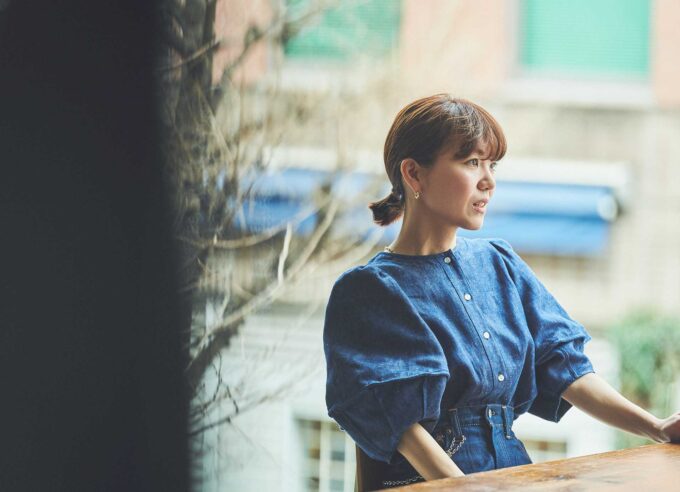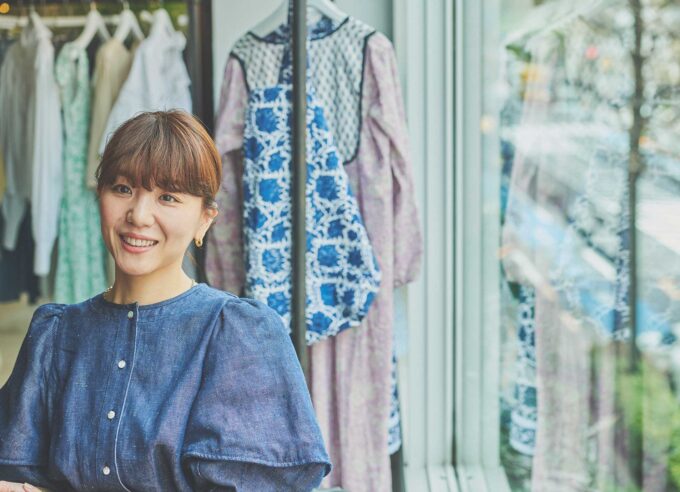Please let us know specific projects you are proceeding with now.
There are many projects. Among them, the solar sharing in Sosa City, Chiba is one of the largest. A solar farm is installed in the abandoned farmland, and the solar panels are mounted on a structure high enough for farm work under them. Moreover, no-tilling organic farming is done in the abandoned farmland, so this project contributes to decreasing CO2 emissions. Three solar farms are being operated now, and the fourth one is going to be built pretty soon.

We have set a target of achieving zero CO2 emission (scope 1 and 2) in RON HERMAN’s business by 2030, however, it is impossible to achieve it only by our company because our shops are accommodated by commercial facilities. Then, we thought we would produce recyclable energy by ourselves to make up the shortfall, which led to this initiative.
In addition, we are working on the traceability of cotton, and also we have started the development of a system that enables customers to provide support to farmers through the project, too.
What are customer reactions?
There are various reactions, including ones from those who are very interested in such issues and ones from those who are not. But to tell the truth, I do not think our customers have to have a strong interest in them. It is important that products purchased by customers are eco-friendly and ensures human rights even if the customers are not interested in or not aware of those issues. As I said before, fashion is something that give people a sense of excitement. If awareness of any issue came first, the fun of fashion would be lost. So, we would like to work on the initiative in the correct order.
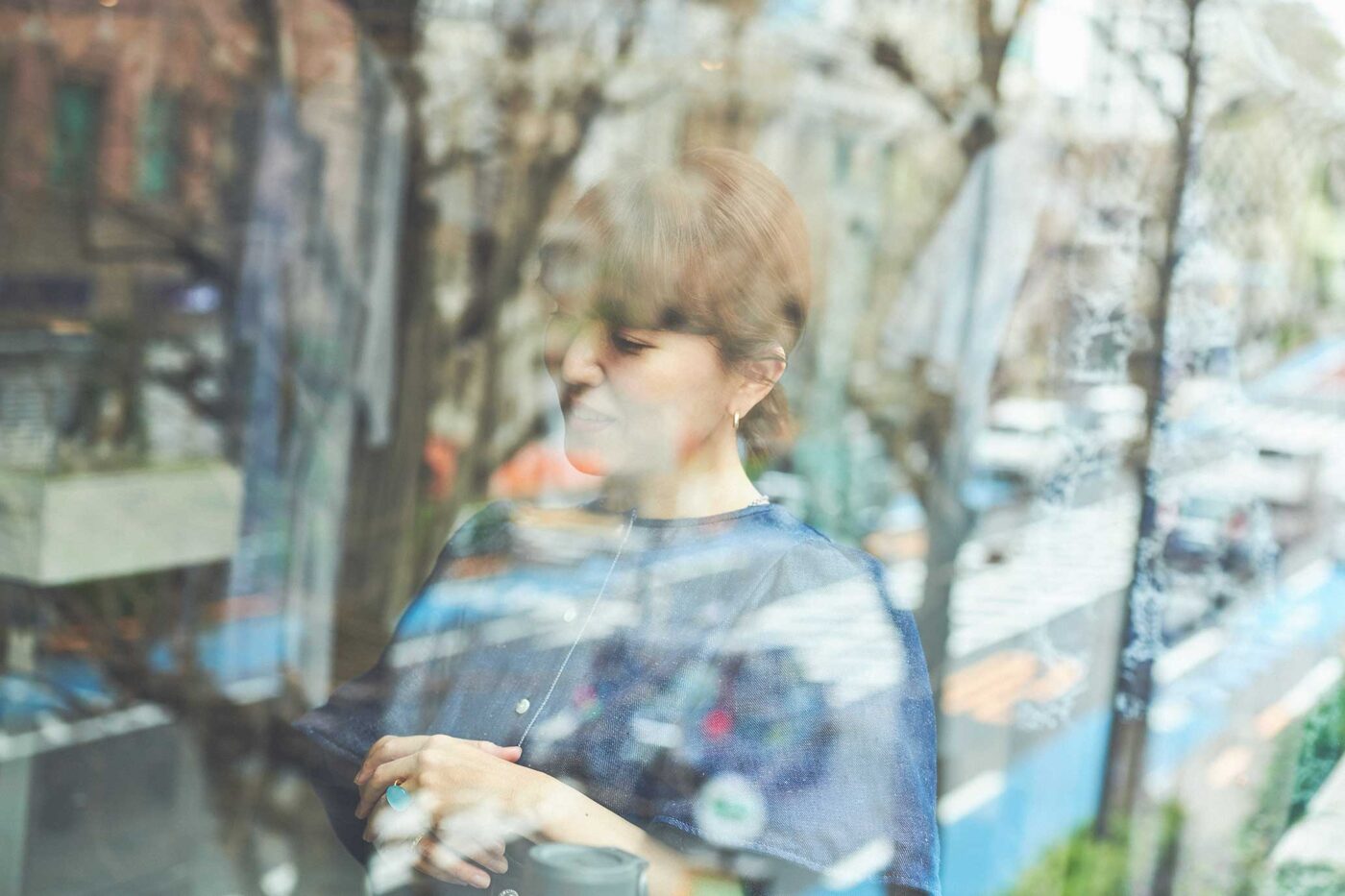
On the other hand, what are internal reactions?
It took time to share the concept at first, but all the members of our company think positively about it now, working on it in various forms actively, not passively. When they can achieve creation that is committed to eco-friendly while maintaining the fun of fashion, their faces are really bright. When I see that, I am glad we have worked so hard.
We think sustainability and materials are very closely related. What do you think of that?
RON HERMAN has declared that we will change our primary materials for making clothes to the most sustainable ones at this point by 2025. With regard to cotton that is one of our primary materials, various alternatives are available including organic cotton and recyclable cotton, so we discuss what we can do each time we select cotton.
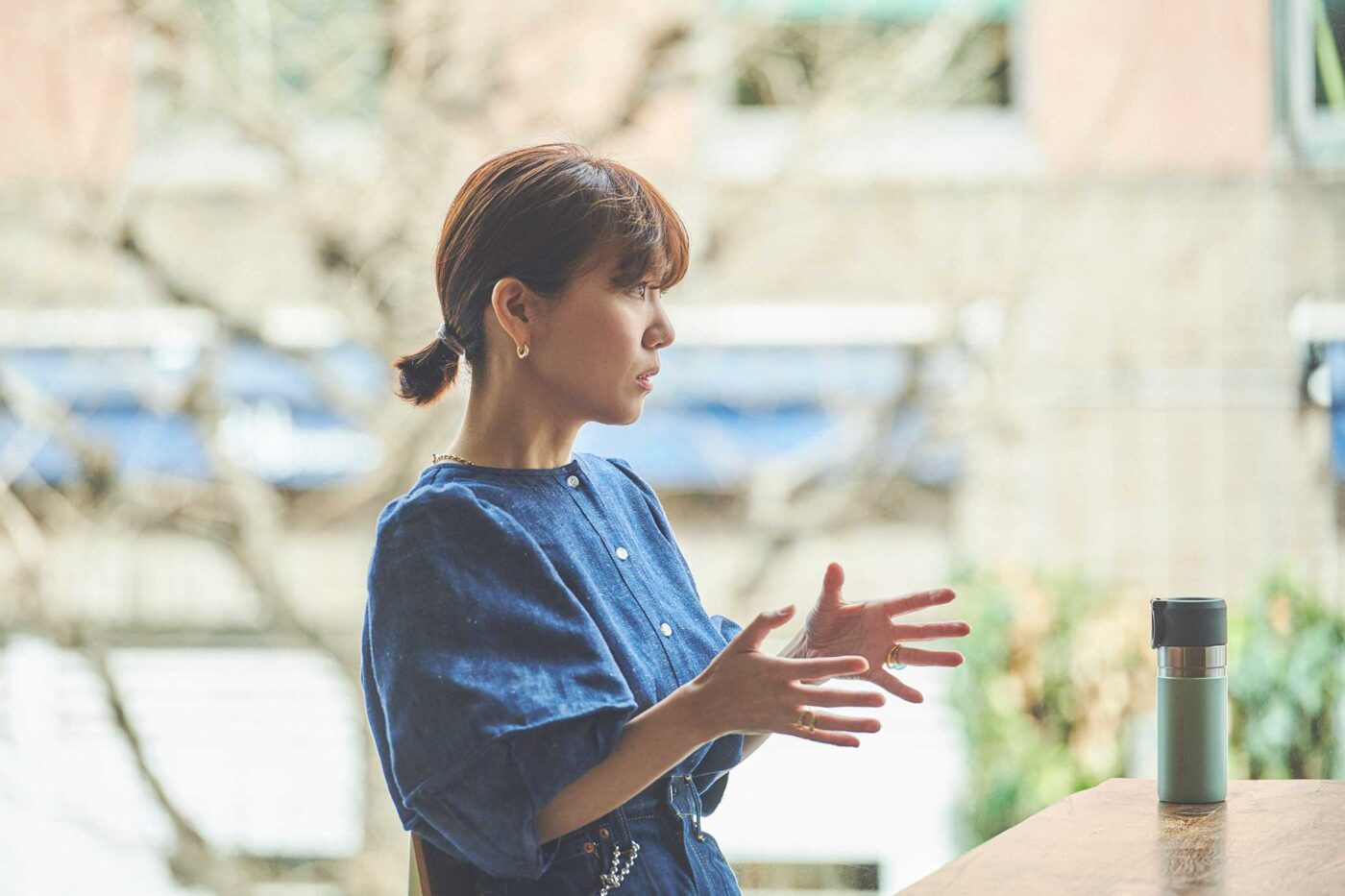
I know textile manufactures are making efforts, and very good textiles have been increasing recently. The circumstances are quite different than they were two years ago, when sustainable textiles available were limited even if we set a theme of sustainability and thus our designers had no choice but to give up various kinds of creation in our products. Today, our designers can enjoy commitment to sustainability in creation. I am very happy with this situation.
Do you know SOLOTEX® that TEIJIN FRONTIER deals in?
Of course. SOLOTEX® tends to draw attention in terms of its functionality, but we often use eco-friendly SOLOTEX®. We do not choose SOLOTEX® because it was eco-friendly but because we like the feel, texture and appearance, and it happens to be eco-friendly as well. This is the wonderful aspect of SOLOTEX®, which is very helpful for our designers, and thus for our brand, because we can concentrate on creation without making compromises. I am really surprised at the evolution.
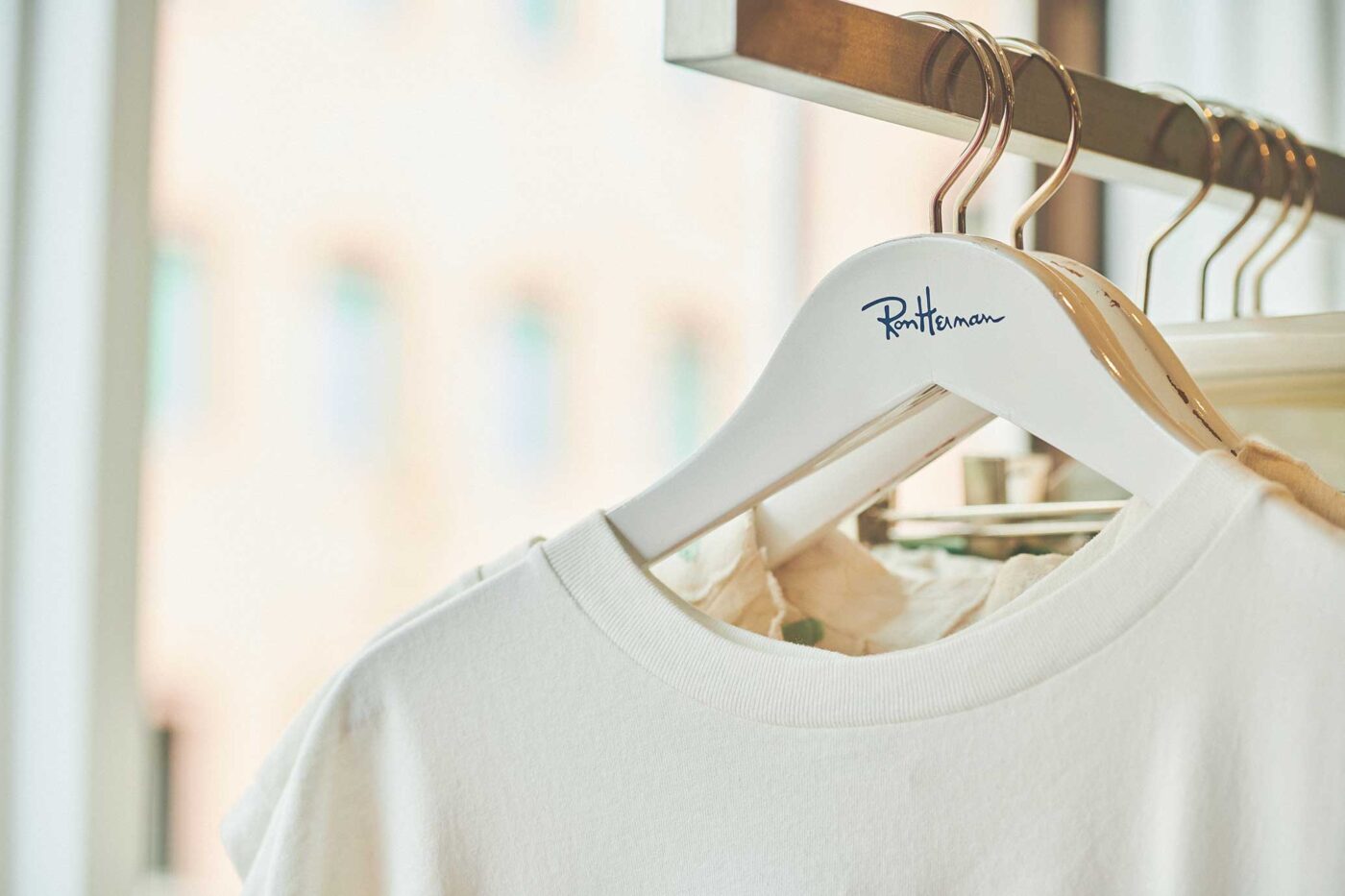
We know there are still not a few people who think that fashion would become dull when getting conscious about sustainability.
That thought may be out of date now. There are many eco-friendly materials with high quality now, including SOLOTEX®. Materials are now developing through friendly competition. So, sustainable fashion may be dependent on how we could use such eco-friendly materials.
What are your expectations for textiles and materials in the future?
I have only good expectations now. The more materials and textiles evolve, the more exciting the fashion will become. I think materials will create great potential when they are integrated with the capability of design. If we can select textiles with no restriction while taking account of sustainability, we could not be happier as those engaged in design. I feel that those who engage in creation would not be able to deliver excitement to customers unless they themselves could not be excited.
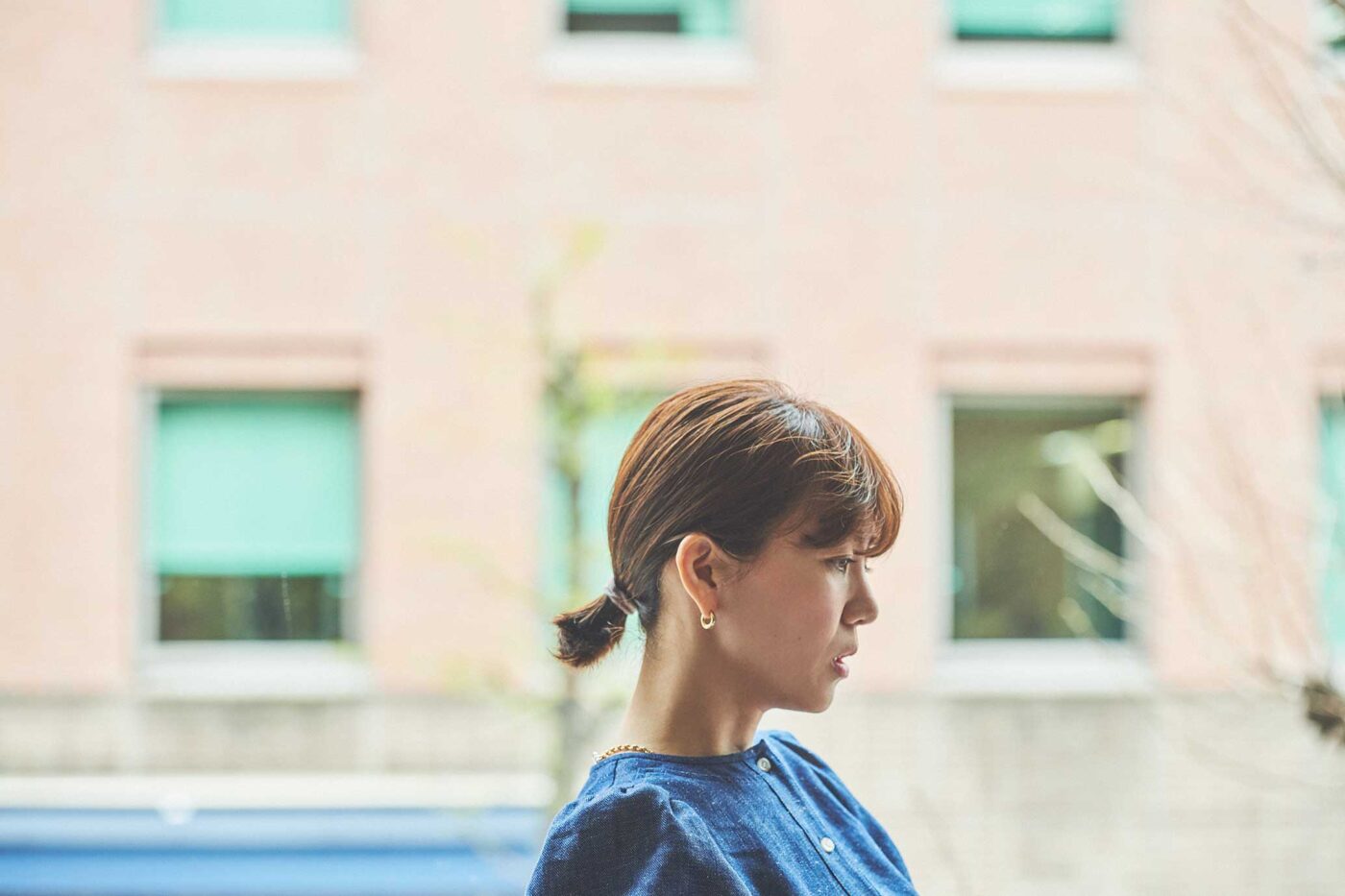
Finally, please let us know what you place importance on in order to continue your activities in the future?
I feel we have to enjoy the activities with pleasure. I think the most important thing is that we ourselves who deliver fashion to customers can be excited, pleased and confident. I really believe that we could create a better future if we would advance together with various people engaging in creation based on a true partnership, not advancing by ourselves.
Yukari NegishiYukari Negishi
She engaged in sales, planning, buying, etc. at a select shop, followed by joining SAZABY LEAGUE, Ltd. in 2008, when RON HERMAN was launched.
After working as a buyer, she assumed the office of Executive Officer of LITTLE LEAGUE COMPANY and RON HERMAN Business Division Director / RON HERMAN Women's Director in 2016.


